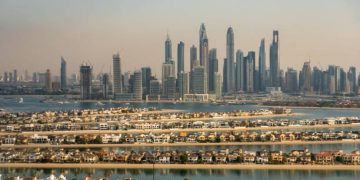The Roads and Transport Authority (RTA) has introduced the Dubai Commercial and Logistics Land Transport Strategy 2030, aiming to double the sector’s direct economic contribution to AED 16.8 billion ($4.5 billion). Announced on June 2 by Mattar Al Tayer, Director General and Chairman of the RTA, the strategy outlines 17 projects designed to support sector growth and enhance competitiveness through digital markets and platforms.
The strategy leverages data and technology to foster the development of high-potential companies, modernize vehicle operations, and encourage innovative and future-oriented technologies. Key projects include developing digital platforms for the transport and logistics sector, issuing value-added permits, no objection certificates, a heavy freight services platform, driver behavior monitoring, an aftermarket platform, a construction equipment rental platform, a road freight data center, and updates to truck fleets.
The strategy aims to regulate and govern Dubai’s commercial transport sector, identifying opportunities for growth, investment, and private sector partnerships. Goals include reducing carbon emissions by 30%, increasing technology adoption by 75%, and improving operational efficiency by 10%.
Al Tayer emphasized the importance of international best practices, cost efficiency, modern technology adoption, and safety improvements. The strategy’s objectives include lowering the total cost per km, updating infrastructure and fleet age, and reducing sector accident fatalities.
The strategy aligns with RTA’s goals of facilitating business, simplifying regulations, upgrading to zero-emission vehicles, improving driver behavior, supporting SMEs, and accelerating technology adoption for future transport modes.
Approved by the Dubai Executive Council, chaired by Sheikh Hamdan bin Mohammed bin Rashid Al Maktoum, the strategy aims to boost the land transport and logistics sector’s economic impact, technological advancement, and environmental sustainability.
The commercial transport sector in Dubai has grown significantly, driven by e-commerce expansion and the emirate’s role as a logistics hub. Currently, there are 351,000 registered commercial vehicles and 9,699 companies, with a compound annual growth rate of 34% over the past five years. In 2021, the sector contributed AED 8.5 billion to Dubai’s economy, representing 3% of GDP in 2022, and created approximately 242,000 jobs.
Your source for supply chain report news updates: The Supply Chain Report. For international trade insights and tools, head to ADAMftd.com.
#DubaiLogisticsNews #TransportStrategy2030 #SupplyChainInnovationNews #LogisticsInfrastructureNews #SustainableTransport















